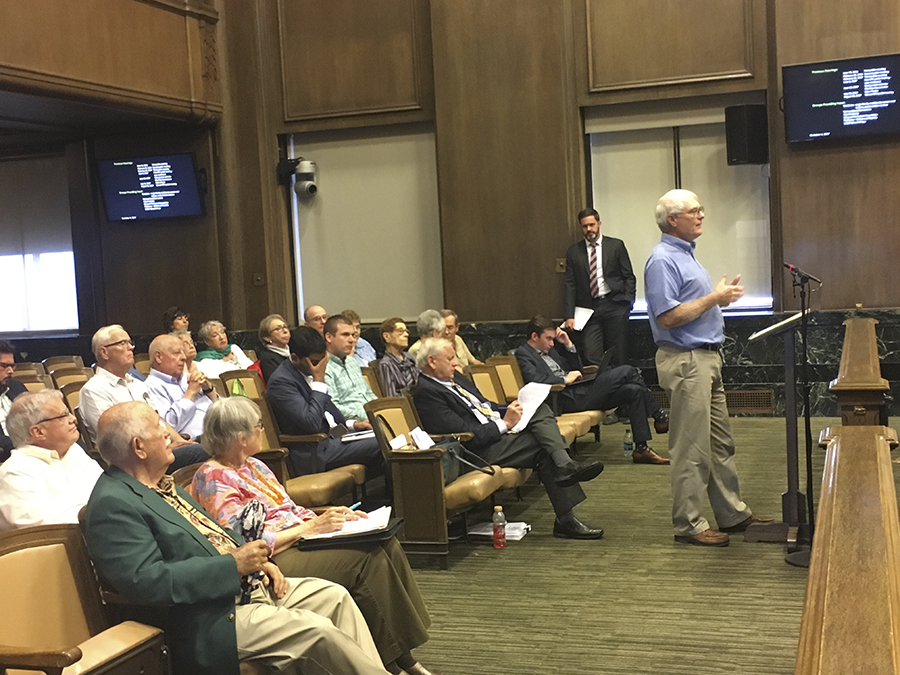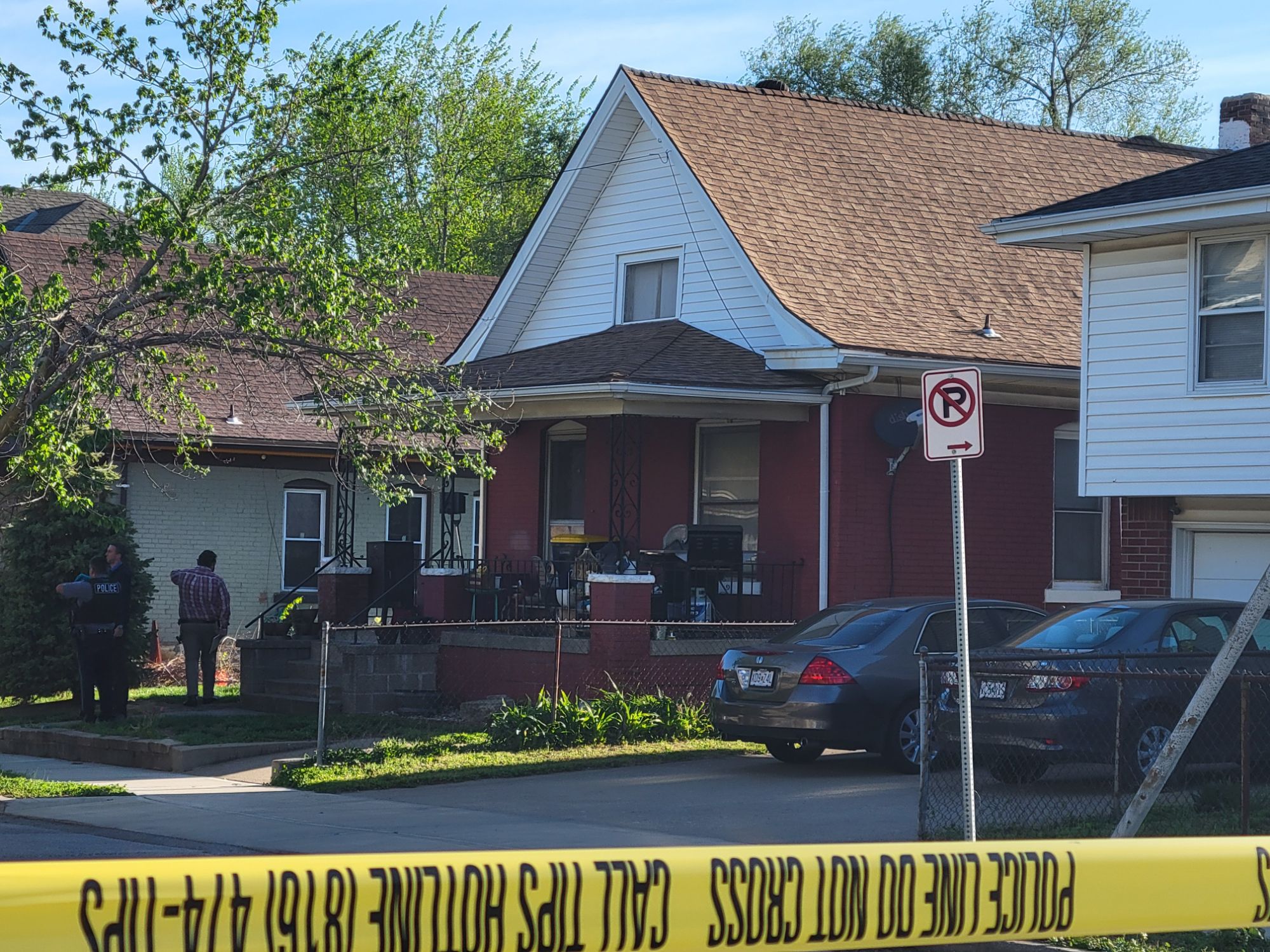
By Paul Thompson
Northeast News
Have you ever considered renting your house out to make a little extra cash? You wouldn’t be alone, and City Hall has taken notice. The KCMO City Council’s Planning, Zoning and Economic Development Committee heard arguments from constituents on Wednesday, October 4 regarding the city’s short-term rental (STR) policy.
The committee is considering legislation designed to set specific standards related to short-term rentals – which have been popularized in recent years thanks to travel-themed phone apps such as Airbnb. More than a dozen area residents on both sides of the issue appeared at the committee meeting to state their opinions on the ordinances. The debate pits weary homeowners and neighborhood associations – as well as established businesses like hotels and traditional bed and breakfasts – against individual property owners who have found short-term rentals as a viable way to help make ends meet.
As with previous debates at City Hall about the relationship between ride-sharing services like Uber and Lyft versus traditional taxi services, the ordinances are attempting to establish a balance between established business models that fall under a robust regulatory system and the emergence of one-off contracting agreements with little regulatory oversight.
The ordinances proposed by the City would divide the short-term rental market into two tiers. Type one includes owner-occupied residences that are rented for no greater than 95 days per calendar year. No more than eight guests could stay in any dwelling unit at a given time, and all prospective units would need to provide notice to adjacent property owners of STR intent. The property would also need to be registered for $100, with an additional annual registration fee of $50. Type two would include single or multi-family structures that are not owner-occupied. Guest limits also apply, and owners would be required to acquire the consent of 55% of adjacent property owners to use the space for short-term rentals. A $259 registration fee would apply, along with the $50 annual registration fee.
Neighborhood association leaders came out against the proposed ordinances, arguing that regulations were too lax for zoning designated single-family residential.
“You came forth with a proposed ordinance that would exclude 7.5 and 10.0 zoning,” said Birchwood Hills neighborhood association President Tim Henry. “That’s a single-family residential zoning.”
Elizabeth Nay, the President of the Loose Park homes association, argued that the nature of short-term rentals essentially turns residential properties into commercial businesses.
“We’re in a residential home; we’re not in a commercial area,” Nay said. “The very nature of a short-term rental makes it a commercial enterprise.”
On the other side of the coin, a handful of local short-term renters testified about the enriching experiences they’ve had since opening up their homes to travelers. Hyde Park resident Nancy Ober said she has hosted more than 190 guests who were in Kansas City for events including business travel, weddings, athletic events and concerts.
“Guests contribute not just to my economy, but to the economy of the city,” Ober said.
Local entrepreneur Tim Barnes also opens his home up to short-term renters in the Rockhill neighborhood of Kansas City. Barnes asked the Housing Committee to keep the loosened restrictions for R-7.5 and R-10.0 parcels, which his home falls under. He also asked the committee to reconsider the restriction that owner-occupied renters must reside at their property for 270 days per year. Barnes argued that in the country’s increasingly contractor-heavy economy, the guideline is too strict.
“It’s ridiculous to say that you need to be there for 270 days a year,” Barnes said.
Kristopher and Sarah Orr are transplants who never intended to settle in Kansas City, but they fell in love with the area while spending time here for work. They said that allowing other travelers to experience – and fall for – Kansas City in the same way they did will provide a boost for the local economy. Renting their multi-family building has also opened up doors for them that wouldn’t be available without the additional income.
“For us, it allowed us to send our son to a Montessori School, something we could not afford to do otherwise,” Kristopher Orr said.
The short-term rental debate has been a long time in the making; the first public meeting on the issue was conducted in June of 2015. In the intervening years, proponents of short-term rentals have banded together to create the Mitchell Citizens Group Short Term Rental ordinance, a citizen-led effort that aims to strike a regulatory balance on all sides. The Mitchell plan calls for more specific host registration with the City, limits on the density of short-term rentals in certain residential districts, and special requirements for trash removal and off-street parking.
One main difference from the city-backed ordinances is that the Mitchell Plan, led by local attorney Steve Mitchell, states that if an individual “is an owner-occupant, or a local owner/manager that lives in the KC metro area, short-term rental can be done with a City permit/registration and certified/registered mail notice to neighbors.” If those conditions don’t apply, as with out-of-state owners, the prospective renter would need the consent of neighbors or a special use permit from the City’s Board of Zoning Adjustment. The stricter City-backed ordinances call more often for special use permits or neighbor consent, such as with an owner-occupied multi-family structure or when a local owner or manager serves as a stand-in for an owner-occupied residence.
Under either the private proposal or the City-backed ordinances, the current hotel/motel and bed and breakfast industries would be protected with a stipulation that each short-term rental host can have no more than four STR units in a multi-family structure (i.e. an apartment building.) All plans also state that no multi-family structure can have greater than 25% of its units utilized for short-term rentals.
Carl Markus owns and operates The Inn at 425 bed and breakfast in the Historic Northeast, and believes that any short-term rental operation should be owner-occupied. That way, Markus said, the owners will bear the responsibility of monitoring the activities at their own property.
“I’m in support as long as it is owner-occupied,” Markus said. “If someone is living there, they will make sure that there’s not wild parties.”
The committee took no action following the October 4 testimony, but the legislation will be debated at an upcoming meeting.


















